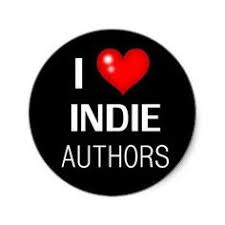
Last week I spent a little time discussing business valuations for both private and public companies as a lead in to my new SuccessPaths series of business “how to” books; no doubt, super boring. Sorry, here’s a little follow-up. Had some input from people asking about companies that are worth billions that have never made a profit—how can that happen?
The quick, easy answer is that it’s all bullshit. Hype on a huge scale. The more detailed answer is that it is based on an assumption about the future, best described as wild-ass guesses. Take Uber for example. Imagine being involved in the first presentations regarding Uber. They were going to take on a tired, stale basic service industry that did not offer much service, the taxi industry. With tech innovation they will improve the service, solve the labor issue and will be able to scale up at a rapid and massive rate. Going from one city to thousands almost overnight using a vast labor pool; the general public. By-passing regulation authorities with a combination of technology hype and political clout. This model could go from zero revenue to billions in revenue in the blink-of-an-eye.
If you were concerned about profitability you were just an old-school, out-of-touch worry-wort of the past. It will become so big; profits will just fall out by magic. The magic didn’t happen; or if you believe the company, has not happened yet.
The company has a market value of $70 billion, revenue of $3.1 billion. The founders and initial investors have made billions for themselves; so where is the problem? It loses money; lots of money. Without investment capital Uber would be bankrupt. Somewhere in the future, those chickens will come home to roost.
This is speculation on steroids. The value has no meaning other than the off chance that it can figure a way to profit from the massive size of the enterprise. Much of the speculation about profits now centers on something never mentioned at the beginning; monetizing the vast data base and self-driving cars. Or, in other words: magic.
Uber is one of many examples of the power of free money. If you can entice investments on a large enough scale you can achieve a burst of “success” while failing. With enough money almost anything can look plausible for a certain amount of time. Much of the hype around innovative, new companies is that their business model has not been proven. That also means it has not been proven wrong! So most of the invested capital will be spent to prove the business “idea” works. But by “works”, we mean can it make a profit?
Let’s go back to Uber. Until the company can show a path to profits and then demonstrate that path is working there may not be any value there at all. So a company worth $70 billion might be worth zero? In the common sense world that would be true; but in the speculative world of crap shooting investments the value could climb to $100 billion on nothing but promise and hope. So if you invested at $70B and sold at $100B, you’re very happy.
Is that wrong? Of course not. As long as investors understand the risk and freely chose to invest based on some future out-come; that is not wrong and is at the heart of most high-return investments and the speculation that drives them.
Businesses exist primarily to make money, so profits do matter. But with enough “free money” the business can survive while searching for those profits and everything will be great (someday); unless it isn’t.

***
Back to books and writing. Interesting reader review for Murder So Wrong.
Realistic read February 5, 2020
As a reader who grew up in Oklahoma City, the setting of the story, the detail is so realistic as to make one wonder if this is a lightly disguised report of true happenings. Either way, it seems real and reads well.
That was one of the best reviews I have read on any of my books. Murder So Wrong is a story based on true events and to have a reader say it “seems real” is absolutely great. While the basis of the books in this series is based on true events the stories are fictional; totally made up. Writing non-fiction books about true events is much harder work; tons of research, fact checking, interviews etc. My forte is just making stuff up; but still I want it to seem like it could have happened, even if it didn’t. Thank you very much reader for your kind words.
***
A few weeks ago I had some thoughts about the controversy surrounding the new book American Dirt. One comment I made was that even with the massive negative reaction, all of the hype would only promote more books sales; and sure enough, American Dirt is number one on Amazons most sold list.
Interesting side note, number one on the most read list (digital subscription services) is Harry Potter and the Order of the Phoenix.
Controversy and celebrity will still sell a lot of books; but if you just want to read a good book, go back to a well written and entertaining story.

















